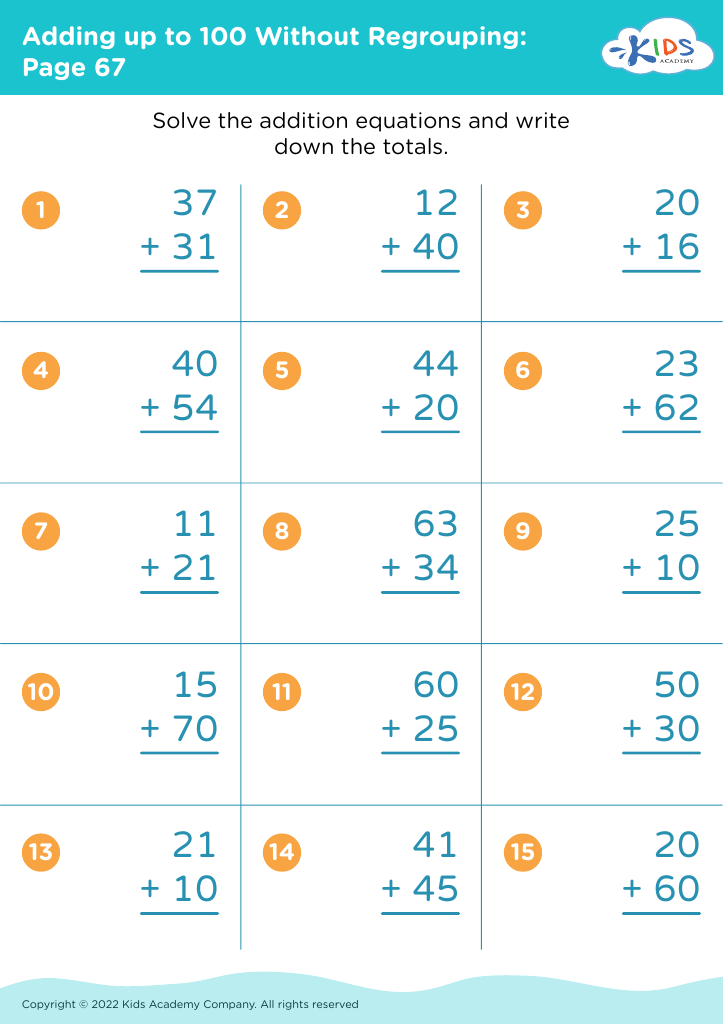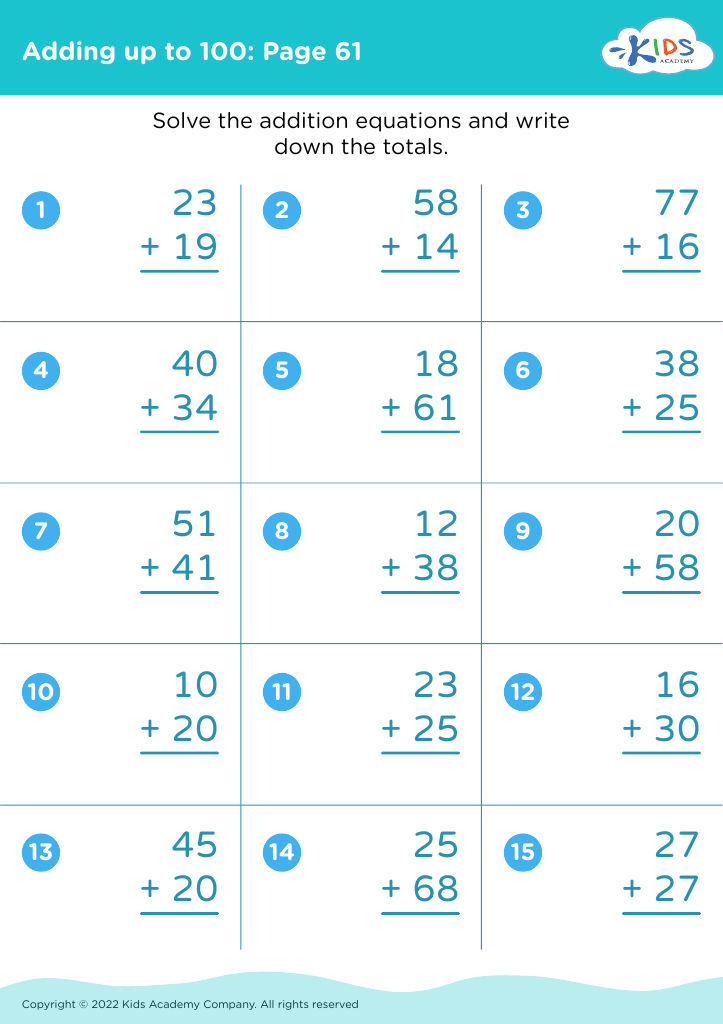Cognitive Development Adding up to 100 Worksheets for Ages 4-8
4 filtered results
-
From - To
Enhance your child's cognitive development with our "Adding up to 100 Worksheets" designed for ages 4-8! These engaging and interactive worksheets help young learners build essential math skills while fostering critical thinking and problem-solving abilities. By practicing addition up to 100, children strengthen their understanding of numbers and relationships. Our worksheets are tailored to capture children's interest and keep them motivated, providing a fun way to reinforce math concepts. Ideal for homeschoolers, classrooms, or after-school learning, these resources ensure kids develop a solid foundation in math while enjoying the learning process. Start your child's math journey today!
Cognitive development is a fundamental aspect of early childhood education, particularly for children aged 4-8, as it lays the groundwork for lifelong learning. Understanding cognitive development can help parents and teachers foster critical thinking, problem-solving, and creativity in children. When children are supported in their cognitive growth, they develop better concentration, memory retention, and the ability to connect ideas.
Parents should care about cognitive development because it directly impacts their child's ability to succeed in academics and social interactions. For instance, children who can think critically are more likely to excel in school and facilitate better communication with peers and adults.
Teachers, on the other hand, play a pivotal role in shaping cognitive skills through engaging curriculum and interactive teaching methods. They can create lessons that promote exploration, questioning, and independent thinking. By identifying individual learning styles and adapting approaches, teachers ensure that each child receives the necessary support.
Ultimately, when parents and teachers prioritize cognitive development, they equip children with the skills to tackle complex challenges, embrace new concepts, and develop a love for learning. This collaborative effort can profoundly influence children's educational journeys and overall success.








%20(1).jpg)













